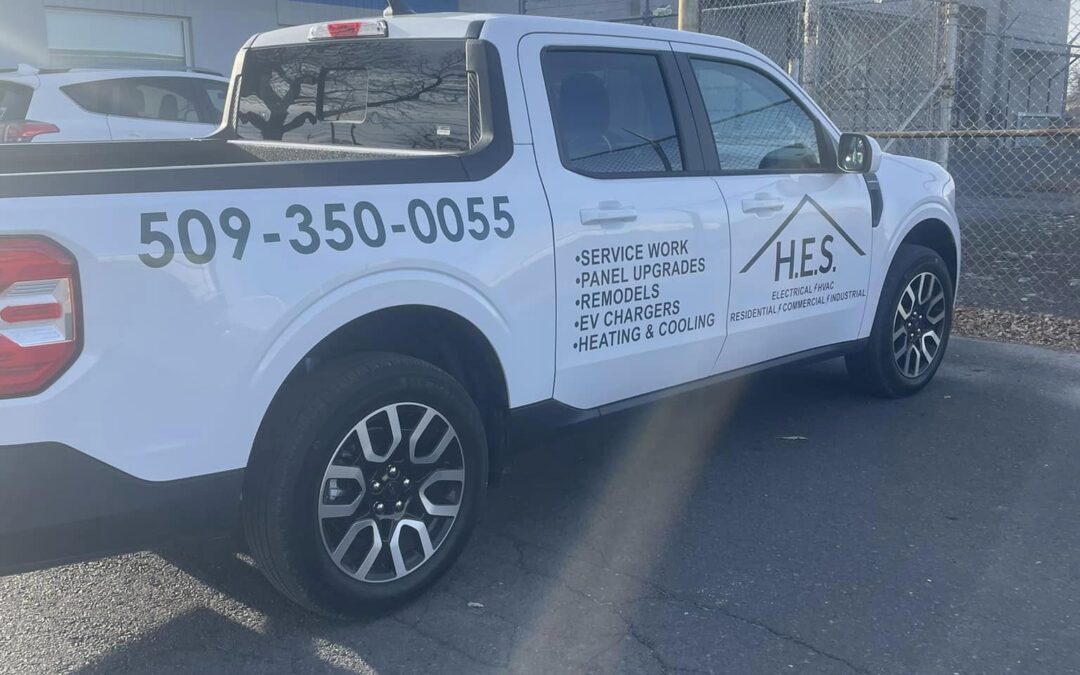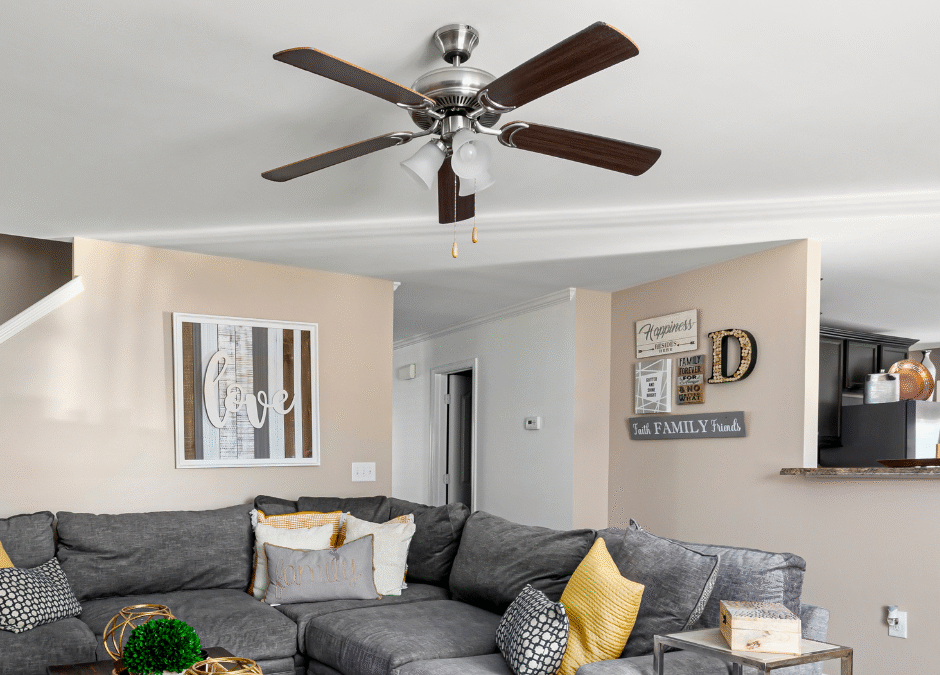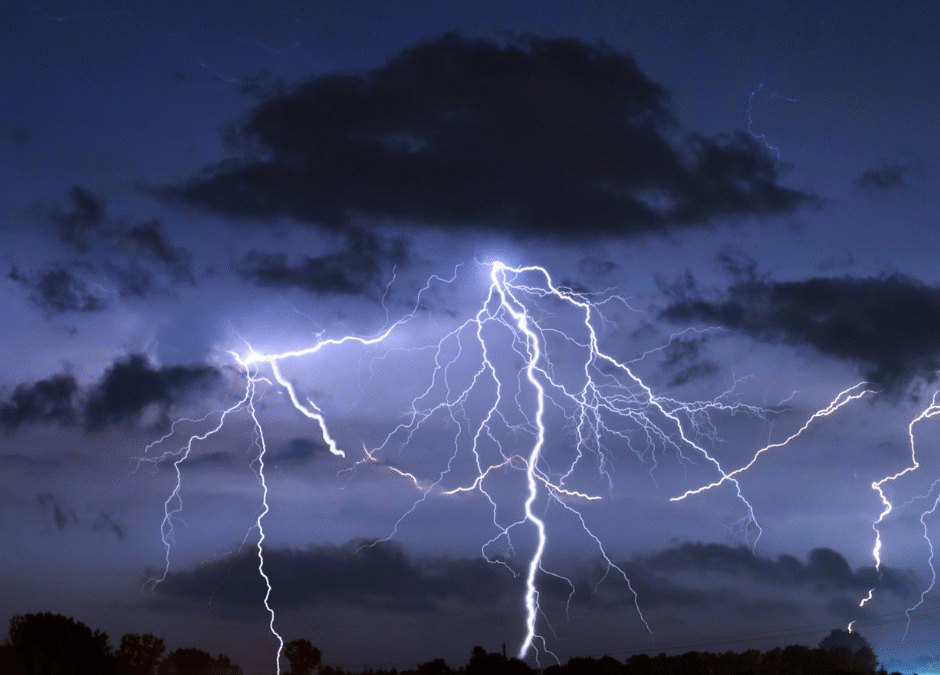Why June in Moses Lake Demands Electrical Prep
Hey there, Moses Lake homeowners! June in Central Washington means sunny days, warm nights, and plenty of sunshine, but also sudden thunderstorms and electrical hiccups. With average highs climbing from the high‑70s to mid‑80s (77 °F → 86 °F) and low humidity in early June only to dip into the 50s at night, it’s prime time for home cooling systems to kick into overdrive.
That extra energy demand? It’s a perfect recipe for overloaded panels, flickering lights, random breaker trips, and the dreaded heat wave blackout. Couple that with June’s thunderstorm potential (lightning, wind gusts, hail), and you’ve got a recipe for summer shocks. So, before the real heat and heavy weather hit, it’s time for your Top 5 Electrical Checklist for June, preventative, protective, and a little peace‑of‑mind ensures your summer stays chill.
1. Inspect Your Electrical Panel Before It Gets Too Hot to Handle
Why it matters
Your breaker panel is the brain behind your home’s electricity, but it isn’t immune to stress. As temps climb into the 80s, internal heat buildup can worsen existing issues: loose connections, aging breakers, or components nearing their life expectancy. Let things slide, and you’ll cook up buzzing sounds, warm surfaces, or unexplained flickering, all symptoms of failure waiting to happen.
Signs to watch for
- Buzzing or humming near the panel
- Hot breakers or the cabinet door
- The lights flicker every time the AC kicks on
- Breakers tripping less than they should
What to do
Give your panel a professional once-over. A licensed electrician from Home Electrical Services can tighten connections, replace failing breakers, and catch problems before they spark a blackout or worse. Don’t wait for the July heat, schedule your June panel tune‑up today via our Contact page.
Be sure to hook up to our existing content on Federal Pacific Panels for background on older panel risks and replacement options.
2. Check Your AC’s Dedicated Circuit (Before It Trips Mid-July)
Why it matters
Your air conditioner eats more power than your fridge, dishwasher, or lights. It needs clean, dedicated electricity to run smoothly, and share a circuit or skimpy wiring, and you’ll find yourself hotter than you should be.
Trouble signs
- AC cutting out under load
- Breakers tripping without an obvious cause
- The unit struggles to start or hums loudly
Take action
Have our pros inspect your AC’s wiring to make sure it’s correctly sized and not siphoning power from other appliances. We’ll ensure your breaker box assignment is right on and the wiring is heat-safe. Beat the July rush, book a visit now through our Homepage.
3. Upgrade or Test Whole-Home Surge Protection
Why it matters
June in Moses Lake isn’t just sunny, occasional thunderstorms can bring lightning even miles away, causing dangerous power surges. That flash of voltage can fry your electronics, appliances, and even your electric panel. Simply plugging your gear into strip protectors isn’t enough protection for your investment.
Think bigger
- Surge protection at the main breaker stops spikes before they enter your home.
- Top-tier units safeguard your most expensive devices.
- Surge protectors price compare well over time, particularly in storm-prone months.
Your move
Take our Ultimate May Checklist for Whole‑House Surge Protection to heart, and let us install or inspect a unit that safeguards your entire electrical system. It’s a small investment for major peace.
4. Tighten and Test Outdoor Outlets & GFCIs
Why it matters
June means sprinklers, garden hoses, outdoor outlets, string lights, and power tools, all exposed to water. GFCI outlets are your home’s frontline defense against electrocution, but they can fail. Weathered housing, corroded screws, or poor gaskets can short a circuit when moisture meets electricity.
What you can do
Homeowners can press the “TEST” button monthly; if it doesn’t trip, replace it or call a pro. Look for obvious signs of rot, moisture, cracks, or corrosion, and drop the red panic call button.
Our answer
Our licensed electricians thoroughly inspect and tighten your outdoor GFCIs and outlets to ensure a safe summer grilling season. No tricks, just safe plugs. Curious? Reach out via our Contact page.
5. Consider a Backup Generator if You’re Remote or Rural
Why it matters
While Moses Lake is a thriving hub (population ~27,000), many of our customers live in surrounding rural areas, roughly grounded in farming culture. When storms, wildfire smoke, or heat waves hit, power outages are more likely, and the longer the wires, the worse the wait.
Generator ROI
- Keeps your fridge and AC running during outages
- A haven for medical equipment, sump pumps
- Protects homes, livestock, and valuables, especially under the Columbia Basin sun
What kind of unit?
From portable units for short outages to permanent whole-house generators for weather resiliency, our team helps you choose based on your budget, home size, and outage risk.
Smart move
Don’t wait for the next summer lull, contact us today for a custom backup generator quote.
Bonus Tip: Watch Your Electrical Bill Spike
June sees August-like energy costs, Moses Lake homeowners pay around $0.066/kWh, averaging $101.57 per month due to high AC usage. A small investment in power efficiency now can save you real dollars while keeping the lights consistently on.
Frequently Asked Questions (Q&A Section)
Q: How often should I have my panel inspected?
A: Annually, especially before summer, it maximizes safety and reliability.
Q: Will surge protection downgrade my internet speed?
A: Nope! It filters out harmful voltage spikes and won’t interfere with data transfer.
Q: Can I test GFCIs myself?
A: Yes, monthly tests are recommended. But for anything cracked, burnt, or loose, call an electrician.
Q: How much does a backup generator cost?
A: It depends on size and brand range, budget $3,500 for smaller systems to $10K+ for whole-home units. We’ll guide you to what’s right for your home.
Wrapping Up: Beat the Heat with Power That Works
Moses Lake’s June climate, warm (average 78–86 °F), steadily sunny, with occasional thunderstorms, creates perfect timing for a short window of power preparedness. A few preventative steps now mean:
- No flickering lights, no breaker trips
- Safe outdoor outlets for the sprinkler and BBQ season
- Peace of mind through storms and outages
So here’s your June mantra:
Panel check ➝ AC circuit health ➝ Whole‑home surge defense ➝ GFCI safety ➝ Generator readiness.
Keep your summer smooth and cool. Don’t wait for the sun to turn your home into a pressure cooker or the next storm to surprise you. Call Home Electrical Services today to schedule your June prep inspection—panels, surges, GFCIs, generators, we’ve got it sorted.
Visit our Contact page to book. Relax—summer’s here, and your power is reliable.




